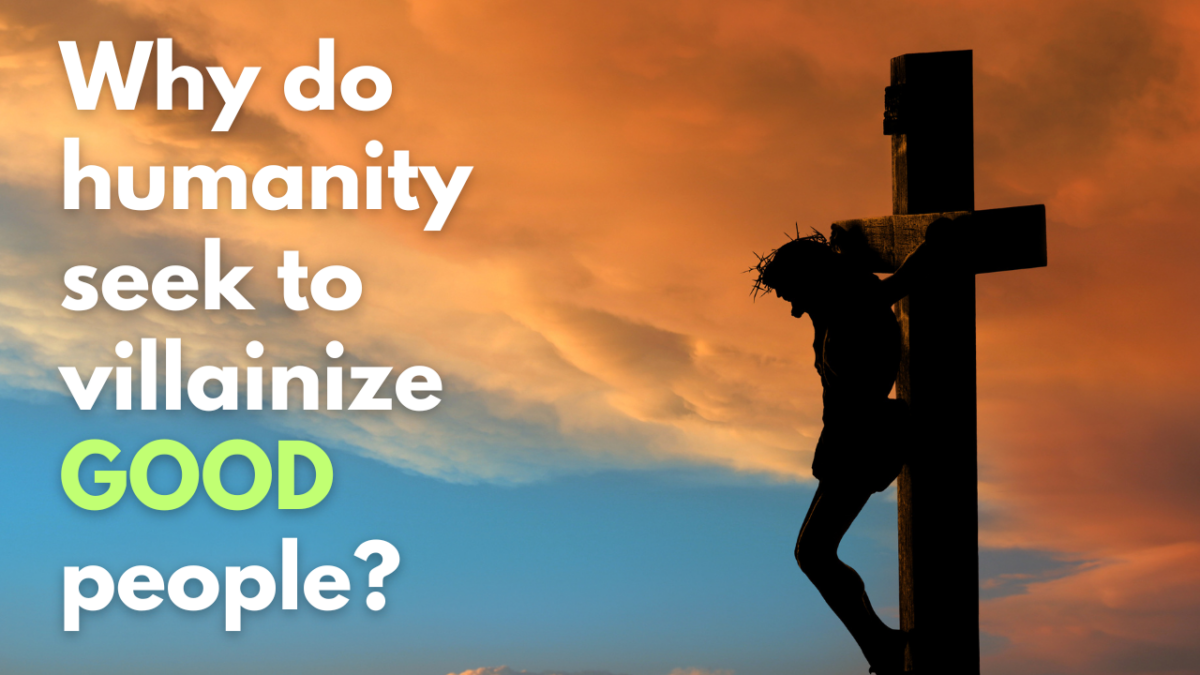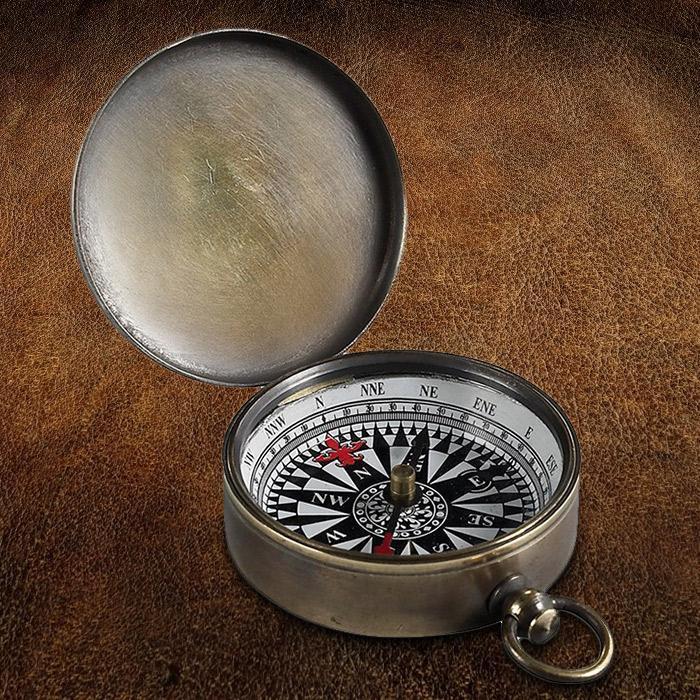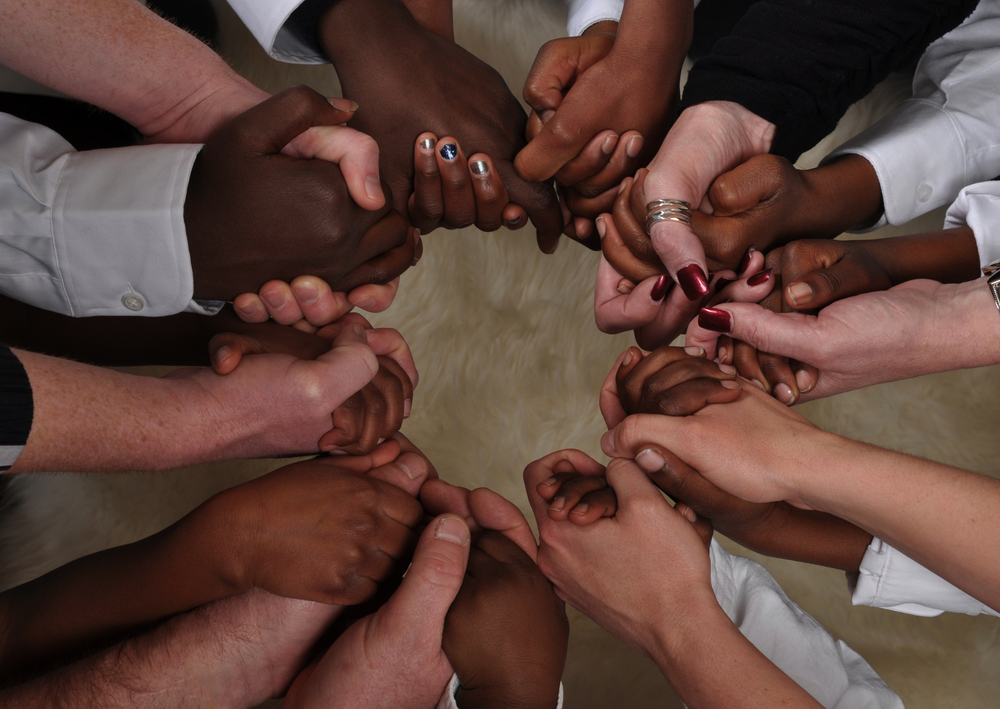Why does humanity seek to villainize Good?
In a world that often confuses and misconstrues the very essence of goodness, it’s imperative that we, as seekers of truth, delve into the heart of vilification or villainization which we witness in abusive speech or conduct towards that which is good.
It is a curious facet of human experience that while doing good deeds brings a sense of fulfilment and aligns with our moral compass, it is often met with resistance or even disdain from others.
Paradoxically, those we extend acts of kindness to sometimes become our harshest critics. The life of Jesus provides the ultimate and most profound example of this phenomenon:
And there was much complaining among the people concerning Him. Some said, “He is good”; others said, “No, on the contrary, He deceives the people.” However, no one spoke openly of Him for fear of the Jews. (John 7:12)
Jesus was eventually brutally crucified for BEING ONLY GOOD!
Two Versions of GOOD
Sadly, throughout history, goodness is often villainized. Some are skeptical towards individuals like Bill Gates or Anton Rupert, who have given much of their wealth for the common good. A number of nations villainize Israel in favour of Palestine. A nation that is well known for the most liberal democracy in the Middle East, most recipients of Noble Price awards, and numerous agricultural, scientific, and healthcare innovations. The innovations of Elon Musk are praised by some and scolded by others.
God called every part of His Creation “good” (Genesis 1:4, 10, 12, 18, 21, 25, 31 and Genesis 2:9, 17). Nature thus teaches us the essence of the Creator’s goodness: Creation sustains itself and maintains the perfect balance between all the parts serving the whole, with each element fulfilling its intended purpose.
The old liar and deceiver (satan) cannot create, only copy what God has created perfect. His copy of goodness is to get us to worship and idolize good! (As if serving the common good is sufficient enough to keep us fulfilled). This is a great deception, for many have fallen prey to the belief that doing good is sufficient to be acceptable to God. God, however, is seeking faith, not goodness (Heb 12:6). The Holy Spirit is the goodness of God residing within – He is not called the “Good Spirit”, but the Holy Spirit!
Many have fallen into adultery, saying: “How can this be wrong when it feels so right?”. The young often seek their well-being in one “good feeling” after another and it comes a destructive addiction!
False “Good” Ideology
Many individuals believe in the oppressor-oppressed ideology enforced by Post-modernism, Critical-race Theory, “woke” Movement and Liberal Human Rights Activism. They hold the belief that any opposition to the freedom to choose your own gender and sexuality is inherently evil and must be eradicated.
Pew Research Center’s 2023 findings highlight a trend where an increasing focus on personal rights, including the choice of gender and sexual preference, correlates with a rising percentage of 40-year-olds in the U.S. who have never married. By age 32, only 26% of millennials are married, a significant drop from the 48% of Generation X and 65% of Baby Boomers who were married at the same age. This trend is directly impacting population growth.
In 30 years, Christianity will still be the greatest religion simply because the Countries with the highest number of more than 80% Christians also have the highest birth rates.
The Complexity of Goodness
From a philosophical perspective, we actively define the essence of Goodness not just by its origin. Rather, its true character emerges through its manifestations in Beauty, Love, Truth, and Gratitude, as those who benefit from it perceive and attest.
This approach actively underscores that Goodness’s real value lies in its effect on the recipients, rather than just in the intentions or nature of the one who creates it.
Goodness is not always a straightforward concept; it carries layers of complexity. We do not always immediately know if our actions are inherently good or bad. Goodness must be tested and proved over time. What appears as a short-term good may reveal itself to be hurtful in the end.
A striking example of a seemingly good invention that eventually turned out to be detrimental to our health is the case of the mineral, asbestos. In the early 20th century, asbestos was hailed as a remarkable material due to its heat-resistant properties, durability, and insulation capabilities. It was widely used in construction, automotive manufacturing, and various industries.
Initially, asbestos was considered a godsend to society, providing safety and efficiency. However, as time passed and thorough research was conducted, it became evident that the same qualities that made asbestos beneficial also made it highly dangerous. Prolonged exposure to asbestos fibers can lead to severe health issues, including lung cancer, asbestosis, and mesothelioma.
Assisting people in times of adversity can be a delicate matter. It becomes particularly challenging when individuals face difficulties due to poor choices and actions. Providing help before they’ve had the opportunity to learn from their mistakes can inadvertently perpetuate their destructive behavior rather than genuinely aid them. Our assistance may be insufficient or not be received by them; and might inadvertently enable their harmful patterns to persist.
The Consequences of our Actions
On the other hand, some actions are unequivocally wrong, and engaging in them has far-reaching consequences. Galatians 6:7 warns us, “Do not be deceived, God is not mocked; for whatever a man sows, that he will also reap.” We bear a responsibility for the effects our actions have on others. We all know that there are things we should not do, like stealing or lying. Giving in to these impulses will have real hurtful consequences.
Since the beginning of time, mankind has tried to cover their sins with miserable “fig leaves” (Gen. 2:16-17):
Woe to those who call evil good, and good evil; Who put darkness for light, and light for darkness; Who put bitter for sweet, and sweet for bitter! Woe to those who are wise in their own eyes, And prudent in their own sight! (Isa 6:20-22)
Jesus took the question of bad actions a level deeper:
JESUS Uncovered Deception!
“Beware of false prophets, who come to you in sheep’s clothing, but inwardly they are ravenous wolves. You will know them by their fruits. Do men gather grapes from thornbushes or figs from thistles? Even so, every good tree bears good fruit, but a bad tree bears bad fruit. A good tree cannot bear bad fruit, nor can a bad tree bear good fruit. Every tree that does not bear good fruit is cut down and thrown into the fire. Therefore by their fruits you will know them. (Joh 7:15-20)
How can you, being evil, speak good things? For out of the abundance of the heart the mouth speaks. A good man out of the good treasure of his heart brings forth good things, and an evil man out of the evil treasure brings forth evil things. (Matthew 12:34-35)
We need to accept that not all people are Good. Although all have been made in the image of God, good people can fall trapped under satan’s control to do his bidding because of resentment, anger, and bitterness. “And that they may come to their senses and escape the snare of the devil, having been taken captive by him to do his will.” (2 Tim 2:26)
Paradox of Good and Bad
One of the profound paradoxes of life is that goodness is sometimes found in hardship and difficulty. Romans 8:28 assures us, “And we know that all things work together for good to those who love God, to those who are the called according to His purpose.” Even in the midst of adversity, God can bring about good.
History is replete with examples of groundbreaking inventions born out of necessity during challenging times. The Great Depression, for instance, led to the creation of numerous innovations, such as the first commercially successful electric refrigerator and the development of nylon stockings. These inventions improved the quality of life and laid the groundwork for future advancements.
One must confront one’s fears, endure suffering, and embrace challenges, for they are vital processes for personal growth, understanding, and finding good even in the darkest moments of life. The best music, poetry and art are often created in our darkest times, struggling with the hardship of life!
Good of God
In Matthew 19:16-17, Jesus makes a profound statement: “So He said to him, ‘Why do you call Me good? No one is good but One, that is, God.’” Are we talking about Jesus here? Why did He not acknowledge His own goodness? To answer this question, let’s go to the first human – God’s interaction in the Genesis Story.
The story of the Tree of Knowledge of Good and Evil in Genesis highlights the deception of trying to be good without truly knowing God (Gen 3:4). This theme is further explored in John Bevere’s thought-provoking book, “Good or God.”
God alone possesses unwavering sovereignty in goodness. The story of Adam and Eve reveals a significant choice: they aspired to be like God without attaining oneness with Him. God created humanity in His image, but our divine attributes find their true alignment only when we are in harmonious unity with God,
that they all may be one, as You, Father, are in Me, and I in You; that they also may be one in Us, that the world may believe that You sent Me. (John 17:21).
We cannot truly emulate God without achieving that profound oneness with Him. The oneness and unity that already exist within the Godhead must be reciprocated in us, mirroring our profound union with God in a similar manner. We can only be most like God, when we are most one with Him.
Fruit of The Spirit
Goodness is included in the Galatians 5:22-23 list of fruit of the Spirit. “But the fruit of the Spirit is love, joy, peace, longsuffering, kindness, goodness, faithfulness, gentleness, self-control.” It is thus evident that goodness cannot function on its own without the other fruit. When we worship and idolize goodness without possessing the other fruit, goodness gets contaminated and turns bad. Parents who always only try to be their own narrowly defined good to their children spoil them. Raising godly children also entails the balance of loving guidance during hardship, modelling self-control, giving correction, and administering consistent discipline.
Judged by Our Good Works
As believers, we must remember that we will be judged by our good works. In Matthew 3:10, John the Baptist warns, “And even now the ax is laid to the root of the trees. Therefore every tree which does not bear good fruit is cut down and thrown into the fire.” Similarly, in John 5:29, Jesus emphasizes the importance of our actions in the final judgment. God is attracted to our dutiful goodness, take for example, the Roman gentile Cornelius: a devout man and one who feared God with all his household, who gave alms generously to the people and prayed to God always. (Acts 10:1-14)
The Conclusion?
Let us remember that true goodness is rooted in our Creator in a world that sometimes seems to vilify goodness. As we navigate the complexities of life, may we strive to discern the true path of goodness, even when it seems hidden or misunderstood.
And let us not grow weary while doing good, for in due season we shall reap if we do not lose heart. Therefore, as we have opportunity, let us do good to all, especially to those who are of the household of faith. (Gal 6:9-10)
Call to Action:
1. Let our goodness be birthed in the presence and oneness of our Creator, Savior and God.
2. Do the “Beauty, Love, Truth, and Gratitude” test. Will the recipients of our goodness respond with a definitive Yes, and Amen.
3. Embrace the fruit of the Spirit and allow the Holy Spirit to work His goodness within you.
4. May our good deeds be without seeking an earthly reward. “Take heed that you do not do your charitable deeds before men, to be seen by them. Otherwise you have no reward from your Father in heaven. Therefore, when you do a charitable deed, do not sound a trumpet before you as the hypocrites do in the synagogues and in the streets, that they may have glory from men. Assuredly, I say to you, they have their reward. But when you do a charitable deed, do not let your left hand know what your right hand is doing, that your charitable deed may be in secret; and your Father who sees in secret will Himself reward you openly.“(Matthew 6:1-4)



